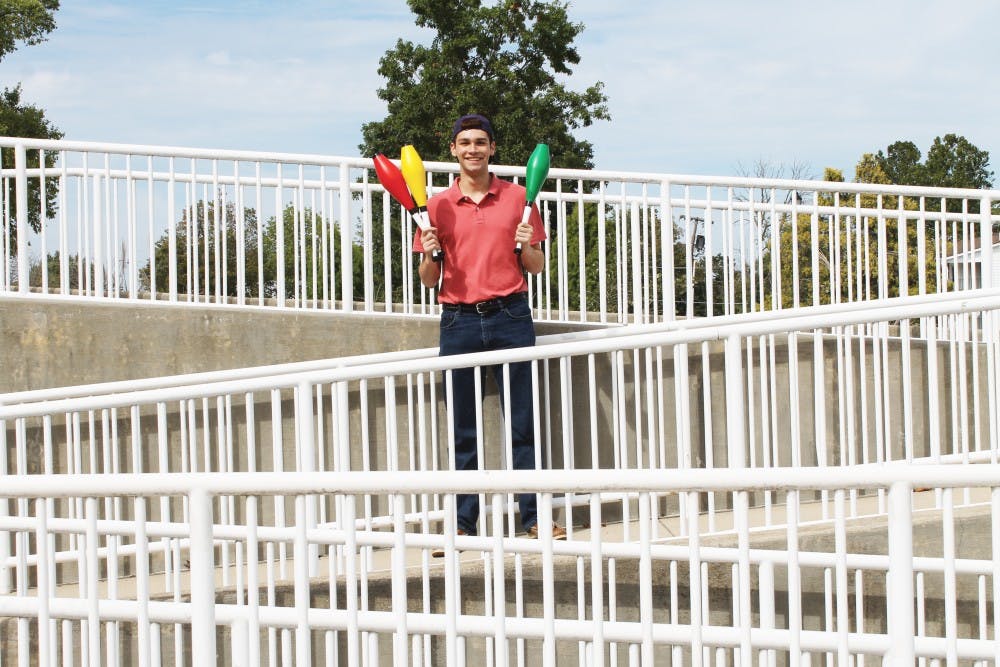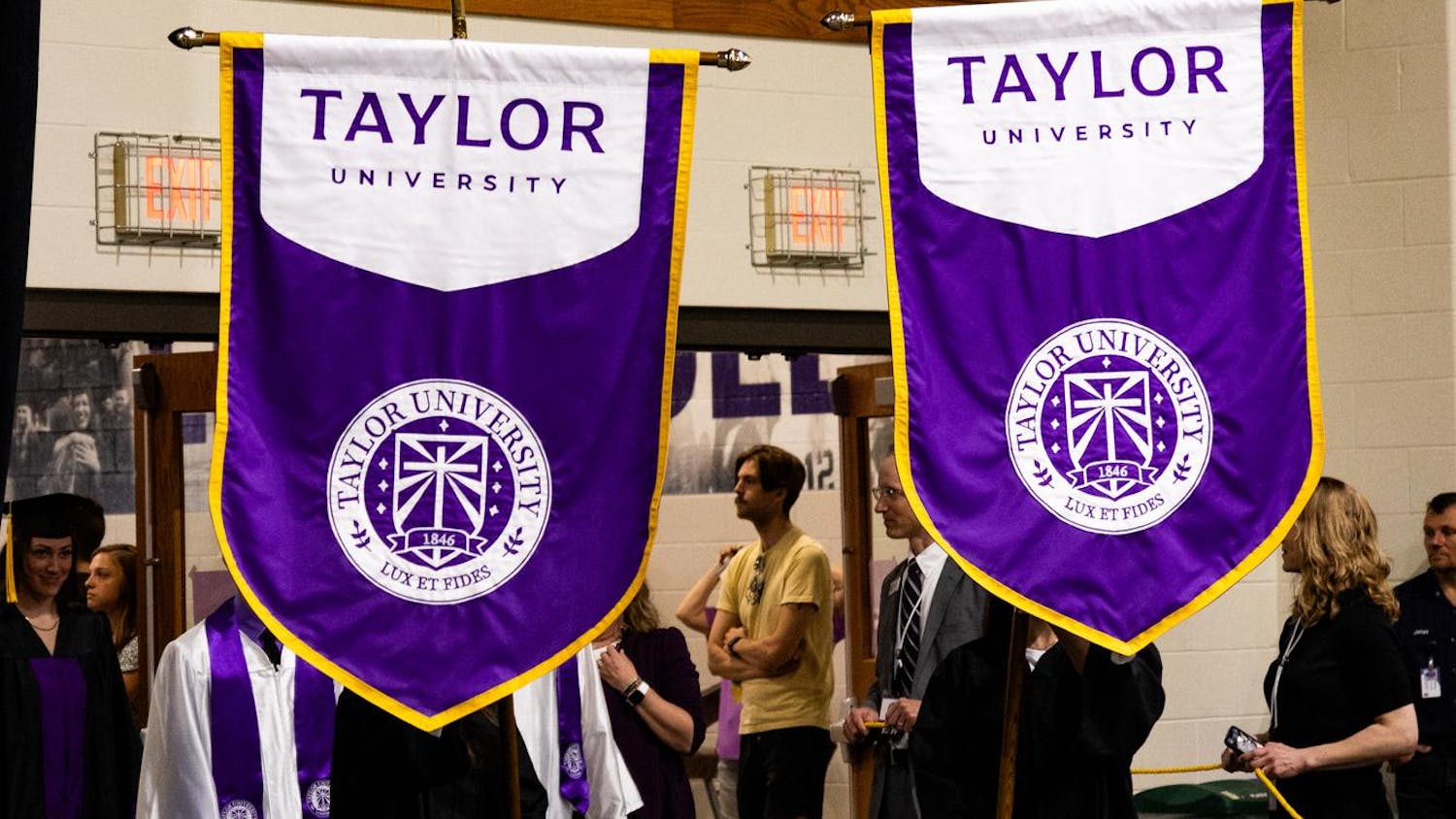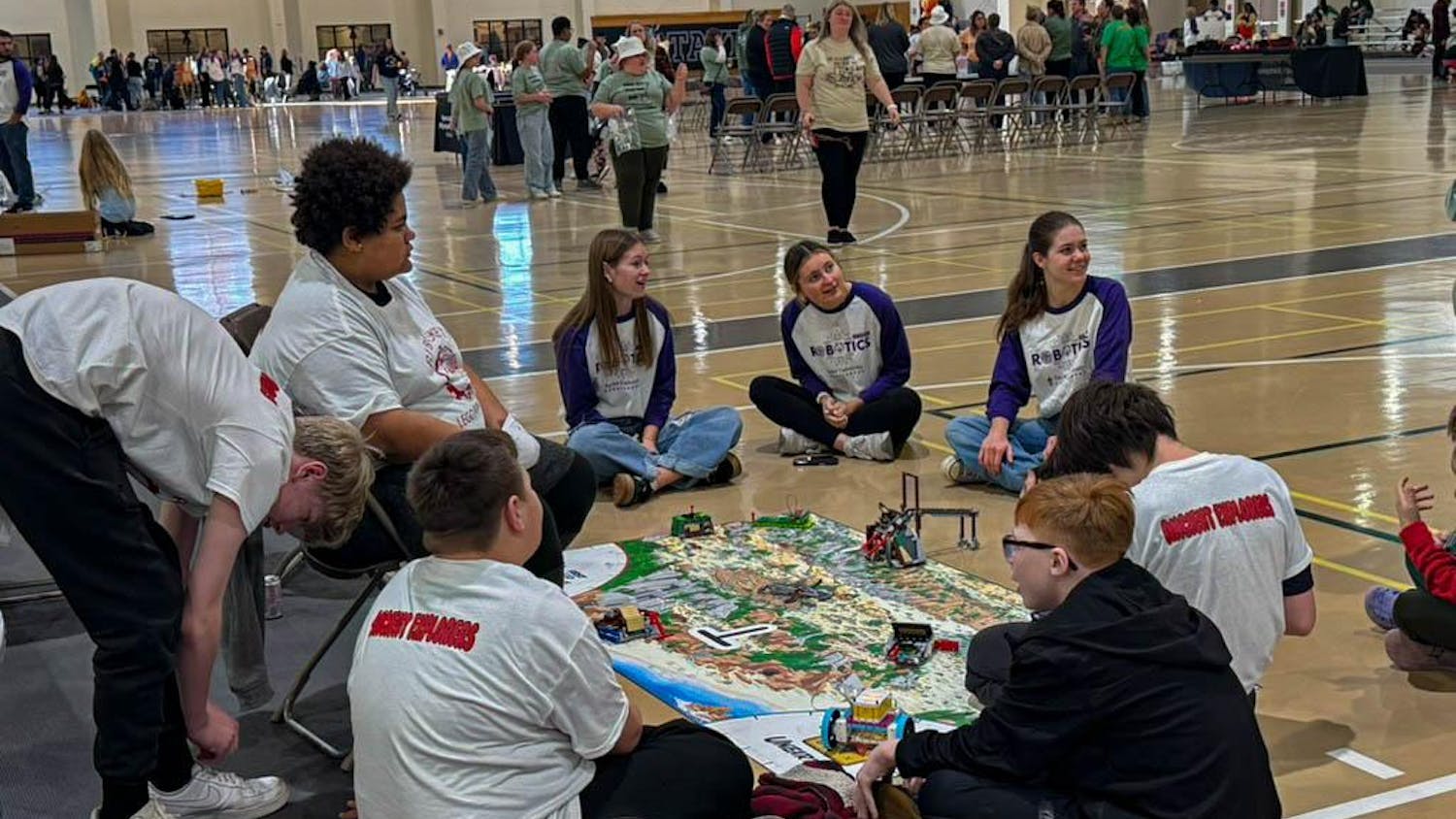 By Rayce Patterson | Echo
By Rayce Patterson | Echo
Ben Kiers
Hobby: Longboard making
How did you get started?
"I longboarded for the first time as an early teenager. A couple of my friends had gotten into it, so I just kinda tagged along with them. I bought my first longboard shortly thereafter, and within months of this all, my friends and I began pipe dreaming about starting a longboard company. It was something we liked to do is imagine what we could do with our lives. One of my friends had this idea that we could start making longboards and I took it seriously. I did a little bit of research online, found a place where I could get wood . . . I probably made my first longboard within a year of riding my first longboard."
What have you learned about yourself?
"Well, this was the first thing that I ever thought 'Hey, I'm gonna do this,' and then I just did it. If you look at the first couple longboards I made, it was kind of discouraging what the results were, and I'm surprised that I actually stuck with it. I guess I just learned that some things are important enough to me that I will stick with them."
What advice would you give to someone?
"I would just say don't give up. It took me and my dad a long time to nail down the process for making longboards, but once we did, it was worth it."
 Hailey Smith
Hailey Smith
Year:
Junior
Hobby: Collecting
How did you get started?
"I started with rocks because I always found them really interesting and accessible. As a kid, I would go to the beach and find the prettiest rock; that was the goal of going to the beach. I would load my dad's pants pockets up until they would fall down a little bit because I had so many that I wanted to take home. Then I started learning more about why certain rocks look the way they do and what the processes are behind them, and I found that really interesting. . .and that led me to different types of shops that have this eclectic collection of things, which led me to more of an appreciation of bugs as well. I don't prefer to deal with them alive, they're still 'creepy-crawly' to me, but I really appreciate how they look and I kind of connect with it spiritually with God, and how he creates such small intricate beautiful things that are easily erased but easily held together. That also led me to bones as well."
What have you learned about yourself?
"I learned that sometimes I don't care what people think. It's something I find an interest in and I don't view it as really creepy. I view it as something really organic and from God, so I have that ability now to share with people, and it's something I can talk about to people with, and they're interested in it because it's odd and they don't do it. Which is great because sometimes I really need a segway or an icebreaker because I can't think of one myself. It's helped me get more in tune with my own spirituality, too, and what I think is important and how to stand strong in that."
What advice would you give to someone?
"I would make sure that they educate themselves; that they don't just do it because they find something to be pretty. They should know a lot about what they're collecting, no matter what it is. That's the point of a collection is that you appreciate what you're collecting. There should be some sort of base meaning."
 Parker Rosario
Parker Rosario
Year:
Freshman
Hobby: Juggling/Knife Throwing
How did you get started?
"I was always fascinated with knives, my dad bought me a seven or eight-inch dagger as a kid. I guess I just fell in love with knives, so then I bought throwing knives. I think it was because of movies, like 'The Expendables.' I got into knives and then I started throwing them, and I was really bad at first. I've done it so much that I got good and then I got some interesting throwing knives like Batarangs and other cool knives like that. I just got into juggling three years ago, then I went from balls to knives then to clubs."
What have you learned about yourself?
"Patience is not one of my strong suits, and I have been working on that throughout juggling because I have juggled for three years, so just starting to juggle regular balls was rough. At first, you don't really get the hang of it and you get really mad at yourself, or at least I did. It's a task you need patience for."
What advice would you give to someone?
"I would say don't ever give up. When you drop the ball, pick it right back up. That is the biggest issue that I had. I would drop it 10 times, then I would want to give up, but (Tanya Crevier, famous ball-handler and Rosario's mentor) would be there with me and she would say, 'Don't stop. Keep going. If you love it, why not push yourself a little bit harder?'"
 Dr. Ed Meadors
Dr. Ed Meadors
Department:
Biblical Studies
Hobby: Tree Farming
How did you get started?
"Initially, it was just through walking in the woods, and then we purchased some land that originally Ron Korfmacher (Taylor's football head coach) introduced me to. Years ago, he and his son, Ben, and I and my kids went camping out at some property close to a forest that we eventually bought. The purchase of the land resulted in spending extended time walking in the woods. Just exposure (to the forest) stimulated an interest to be able to identify the different trees and to appreciate their bark, and to appreciate smells produced by roots, such as sassafras and crunched up leaves. I've discovered that being in the woods is very healthy; it's kind of my preferred getaway. It's just a wonderful, satisfying thing and to actually grow trees is an education too. You can buy 100 white oaks, 100 red oaks, 100 walnuts, 100 cherry . . . and start your own farm with a few acres, and that's essentially what I did."
What have you learned about yourself?
"It's the discovery of a dormant interest that I really didn't have . . . there are also dormant interests that maybe have not yet been unlocked awaiting you, which is exciting. For me, tree farming, botany fits that description. I've also developed an appreciation for wild flowers. I am healthiest when I am not pressured, when I am not rushing and when I'm taking my time doing what I am doing well. Tree farming has taught me that. There are many moments when things seem to be coming from every direction . . . and I just have to tell myself,'Slow down. Take some deep breaths. Whether it's writing or preparing for class or teaching class, enjoy it.'"
What advice would you give to someone?
"The key is patience. Make sure to get indigenous species that naturally grow here, that's a big mistake that many people make. Maybe consult Rob Reber, one of our environmental science professors. Larry Glass (a friend of Dr. Meadors) . . . has put in thousands and thousands of trees and he was probably the most helpful advisor. He was a huge help."
 Dr. Tricia Stan
Dr. Tricia Stan
Department:
Chemistry
Hobby: Bird Watching
How did you get started?
"It really started officially when I met my husband. He was a bird watcher already. One of the first times we went out, we went to the zoo and we were watching ducks, different types of ducks, and so it became a shared passion."
What have you learned about yourself?
"I think maybe it has brought out the love of (bird watching). How many can you get? Which ones can you find? I think it has probably brought out the love of travel and meeting people. Most birders I have met are very nice people, and it kind of helps you to look for the good things in all people because there's no particular look of a birdwatcher."
What advice would you give to someone?
"Learn how to use your binoculars because it's not as easy as it might seem. Look through your bird book before you go out. You can have an idea of what type of birds you might see, and if you review those before you go out, it's a lot easier to recognize them."




